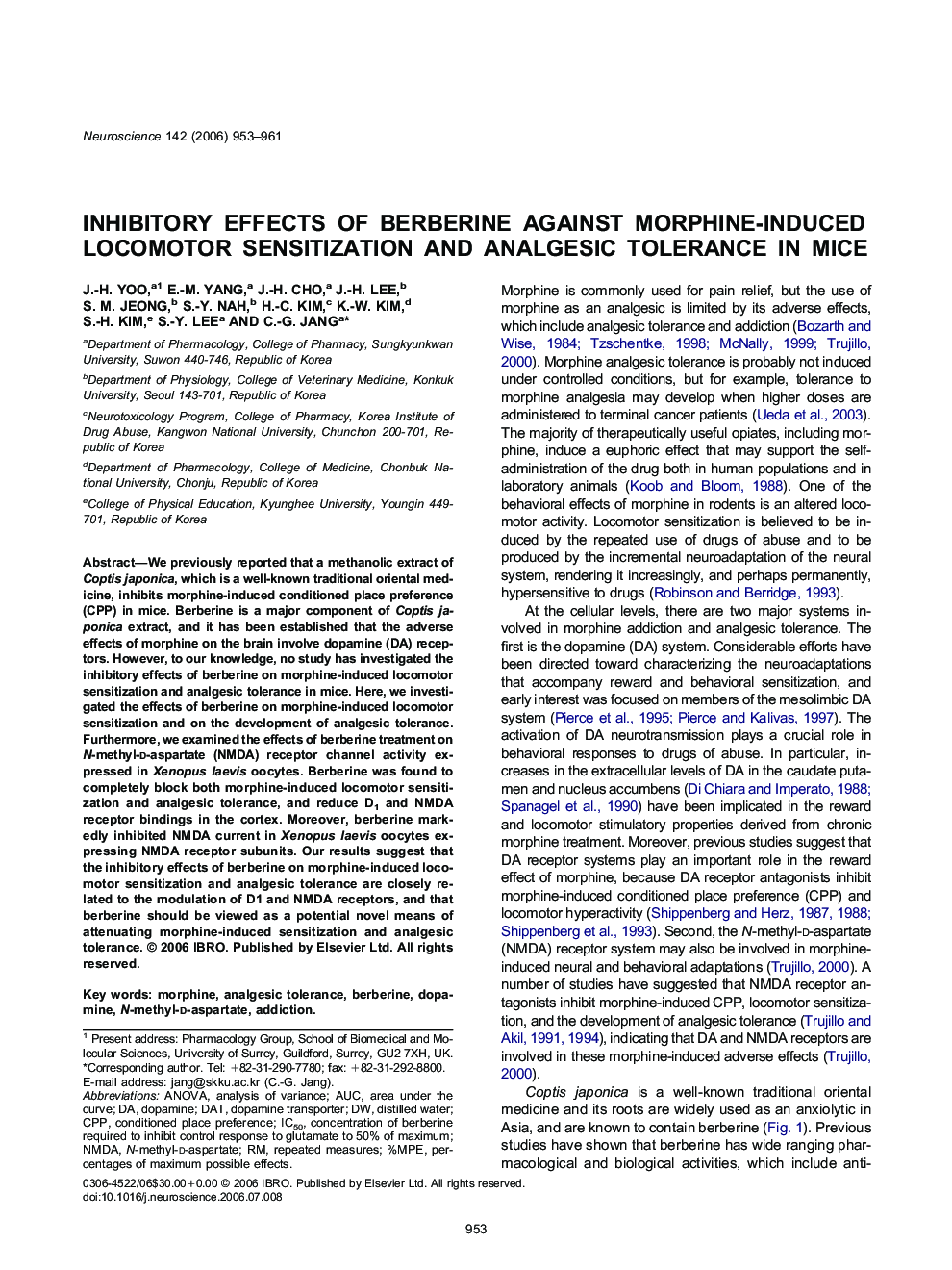| Article ID | Journal | Published Year | Pages | File Type |
|---|---|---|---|---|
| 4341557 | Neuroscience | 2006 | 9 Pages |
We previously reported that a methanolic extract of Coptis japonica, which is a well-known traditional oriental medicine, inhibits morphine-induced conditioned place preference (CPP) in mice. Berberine is a major component of Coptis japonica extract, and it has been established that the adverse effects of morphine on the brain involve dopamine (DA) receptors. However, to our knowledge, no study has investigated the inhibitory effects of berberine on morphine-induced locomotor sensitization and analgesic tolerance in mice. Here, we investigated the effects of berberine on morphine-induced locomotor sensitization and on the development of analgesic tolerance. Furthermore, we examined the effects of berberine treatment on N-methyl-d-aspartate (NMDA) receptor channel activity expressed in Xenopus laevis oocytes. Berberine was found to completely block both morphine-induced locomotor sensitization and analgesic tolerance, and reduce D1 and NMDA receptor bindings in the cortex. Moreover, berberine markedly inhibited NMDA current in Xenopus laevis oocytes expressing NMDA receptor subunits. Our results suggest that the inhibitory effects of berberine on morphine-induced locomotor sensitization and analgesic tolerance are closely related to the modulation of D1 and NMDA receptors, and that berberine should be viewed as a potential novel means of attenuating morphine-induced sensitization and analgesic tolerance.
